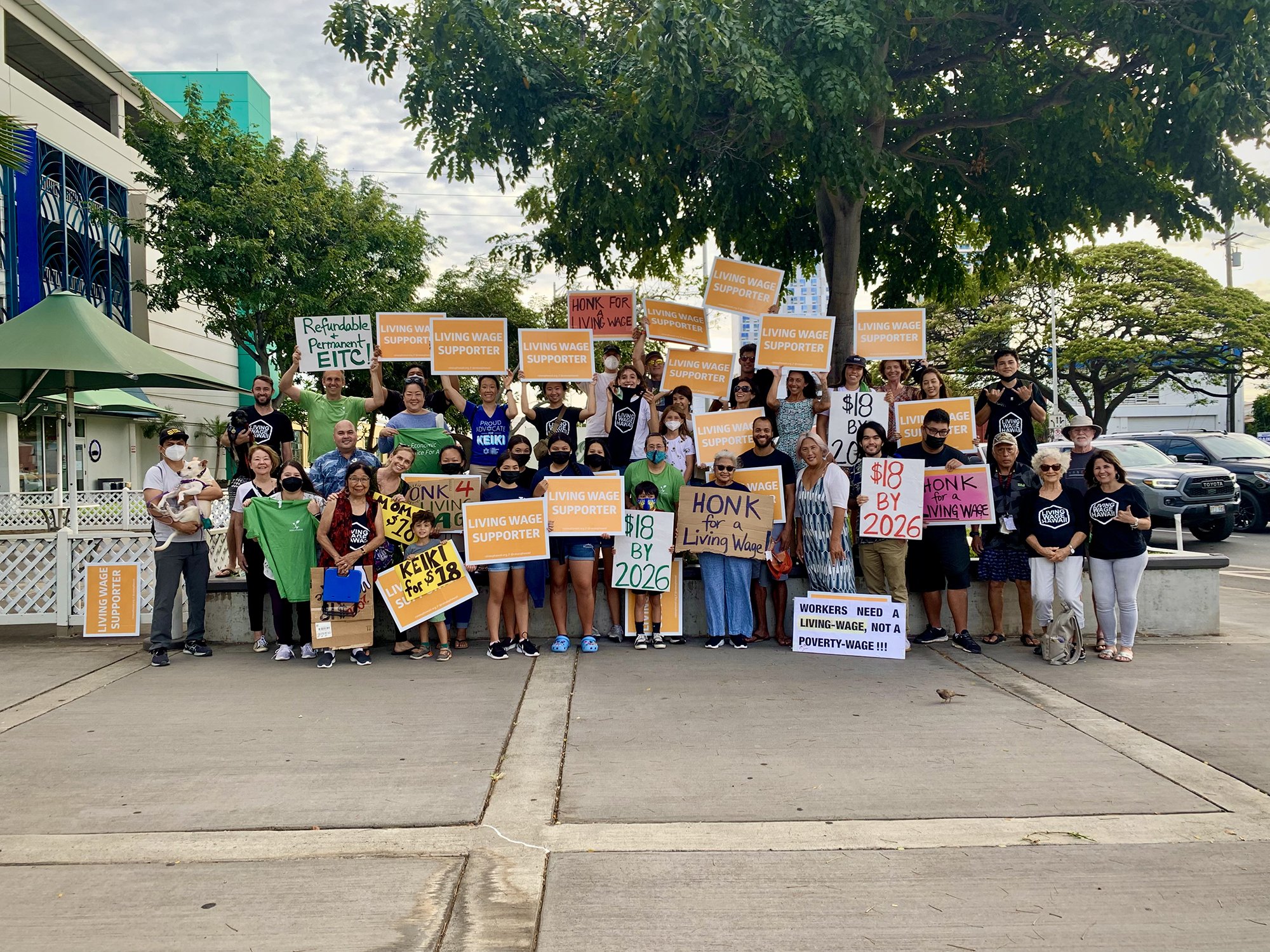
The chilling effect: How federal cuts and immigration crackdowns threaten food security in Hawaiʻi
The mega budget bill that Congress recently passed narrows who can access critical programs like SNAP and Medicaid, while fueling fear and confusion about who can safely apply for assistance in the wake of increased immigration enforcement.

Hawaiʻi’s 2025 legislature focused on raising tax revenue to prepare for federal cuts
Assessing a proper tax rate on corporations and the wealthy will be necessary to produce a budget that can fund critical safety net programs and investments in our future.

How a second Trump presidency could impact the pocket books of Hawaiʻi’s working families
Outside of the top 5 percent richest households, families will likely see significant tax increases, while the cost of consumer items would spike under proposed tariffs.

Census poverty data for 2023 highlights the importance of government assistance
Promising trends for families across the nation, but many continue to feel the lasting effects of widespread unemployment during the pandemic, a rising cost of living, and inadequate government assistance.

Hawaiʻi’s elected leaders buy-in to costly “trickle-down” myth
Passing an “historic” tax cut that mostly benefits the wealthiest Hawaiʻi residents is not the path to a healthy economy that works for working people.

Trickle-down estate tax break bills are bad policy for Hawaiʻi
After decades of evidence, we know “trickle-down” economics is a smokescreen to aid the wealthy in creating preferential tax policies.

Hawaiʻi is even less affordable after the pandemic
How have jobs, wages and costs changed from before the COVID pandemic compared to after? These charts show changes from 2019 to 2022 that have affected livability for Hawaiʻi residents.

Keiki poverty more than doubled last year without the expanded Child Tax Credit
Hawaiʻi lawmakers have an obvious solution at their disposal, if they are willing to act on it.

Lawmakers still need to equitably raise revenue to meet Hawaiʻi’s needs
On tax policy, state legislators made progress in 2023 with tax relief, but left smart, revenue-raising policy initiatives on the table for next session.

What made the 2022 Hawaiʻi legislative session a win for working families?
After multiple years with little progress on policy to help working families survive Hawaiʻi’s highest-in-the-nation cost of living, several factors came together to deliver a banner year in 2022.

Honolulu County’s eviction mediation program was a resounding success
Act 57’s pre-litigation eviction mediation program shows a promising pathway forward to greater housing security by preventing evictions and keeping families housed.

A Hawaiʻi Child Tax Credit would keep thousands of keiki out of poverty
After the expiration of the expanded federal Child Tax Credit, poverty rates spiked—it’s time for Hawaiʻi lawmakers to step up and fill the gap.

Opportunities for Hawaiʻi to maximize its budget investments
Maintaining government spending on public programs, Hawaiʻi’s workforce, and contractors for the state keeps money circulating throughout the economy as people pay for housing, food and other services.

How Hawaiʻi is funding its $24 billion FY23 budget
The legislature not only decides where money is spent, but also makes many of the decisions about who pays how much to support the budget.

How the state plans to spend its $24 billion FY23 budget
The budget determines how our collective resources will be distributed to pay for programs and investments that support public needs. The funding decisions made in the budget demonstrate where our collective values lie.

Honolulu council should take time, consider whether Bill 45 is a good investment
While the stated purpose of Bill 45 is to promote economic growth, there is no way to show that providing the additional incentives in Bill 45 would be a cost-effective use of the city’s funds.

Federal spending reduced overall poverty last year despite the pandemic-recession
But in Hawaiʻi, tens of thousands of residents below the poverty line still struggled to make ends meet.

Lawmakers must do more to invest in Hawaiʻi regenerative agriculture
The success of sustainable agriculture in Hawaiʻi will be contingent on sizable government investments in both small-scale farmers and the agencies that serve them.

A better kind of unemployment insurance
Short-Time Compensation allows employees to stay in their jobs at reduced hours, pays more than the state’s current UI does, and ensures that they keep their benefits.

The Micronesian community is being disproportionately harmed by COVID-19
Given the precarious situation in which COVID-19 places the Micronesian community, the State of Hawaiʻi must take steps to help in both the short and long term.
